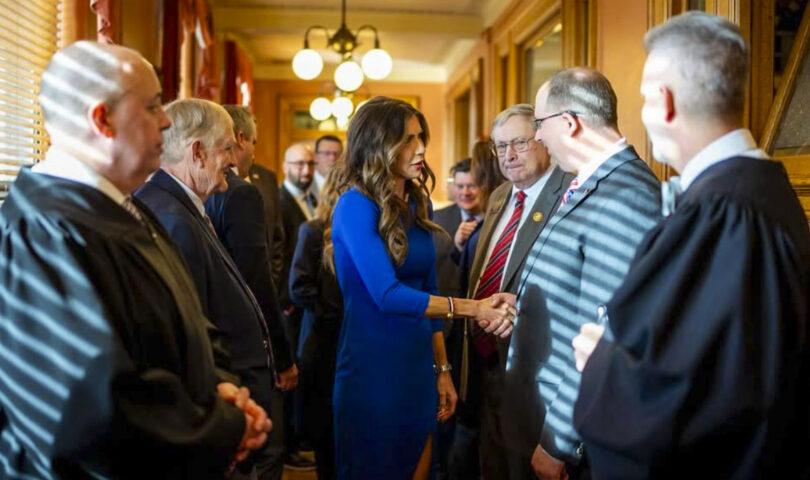
As of 2023, 25% of U.S. Senators were women, compared to 10% in 2000 and 0% in 1977, according to the Pew Research Center. As of 2025, this number has only grown to 26 female senators, and only 64 have served in U.S. history. Meanwhile, in the House of Representatives 29%, or 125 of the current members are women. Historically, only 3.7% of all House members, or 378 out of 10,506 possible seats throughout the years, were held by women. These numbers show a trend, or more accurately, a lack of one.
Women are not well represented in government. Despite making up 49.7% of the global population, and 50.5% of the U.S., female representation in elected government positions is an area of immense underrepresentation. Like many social issues, our government has the opportunity to do something about it.
Current U.S. Secretary of Homeland Security Kristi Noem served for six years as South Dakota’s first female governor before stepping down to join President Donald Trump’s cabinet. During these six years, she was forced to refer to herself as “he” — as per the state constitution. Despite legal efforts to change this state constitution language to more gender-neutral terminology, such as “the Governor” instead of he, or “Assembly member” instead of “Assemblywoman” or “Assemblyman,” the efforts have died in state elections, required to change the constitution.
Unfortunately, efforts to make government language more gender-neutral and less male-centric have been drowned out by public dysphoria surrounding a right-wing trigger word: pronouns. Women, a group who could not vote until 1920, deserve to be recognized by government documents.
Changing terminology to “they” instead of “he” is not the “War on Gender” play that Trump’s recent executive orders suggest, but rather a natural next step to recognize the impact that female representatives and women at-large have had on our nation, and a firm message that leadership is not reserved for our nation’s men alone.
Moreover, the fact that both Republican and Democratic representatives have recognized a need for correcting gendered positions in state constitutions should be all the more proof that this is a nonpartisan issue: Male is not the default.
sglisson@ramapo.edu
Featured photo courtesy of @kritinoem, Instagram






